Collaborating with Customers to Achieve Corporate Strategy—How Small Steps Can Lead to Large Impact
 Healthcare systems worldwide are criticized for falling short of expectations, and countries like the U.S. which feature aging populations, are rapidly approaching a crisis. Demand and cost will grow, but the system as currently structured will certainly break down unless radical changes are made. Web 2.0’s disruptive potential can be part of the remedy: we need to introduce much more accountability and collaboration into all parts of the system. We need to change the paternalistic attitudes that pervade the system, treat patients as active participants and encourage everyone to be more accountable. This series introduces healthcare Web 2.0 innovators. Healthcare systems worldwide are criticized for falling short of expectations, and countries like the U.S. which feature aging populations, are rapidly approaching a crisis. Demand and cost will grow, but the system as currently structured will certainly break down unless radical changes are made. Web 2.0’s disruptive potential can be part of the remedy: we need to introduce much more accountability and collaboration into all parts of the system. We need to change the paternalistic attitudes that pervade the system, treat patients as active participants and encourage everyone to be more accountable. This series introduces healthcare Web 2.0 innovators.
CDC Business Drivers
CDC’s charter is to protect public health. The agency serves as a resource to mitigate the impact of infectious diseases, environmental health, bioterrorism and others. It fulfils its mission by connecting with people and educating the public; it seeks to partner with people to increase their knowledge of health hazards and how to respond appropriately in the face of threats.
[…]
French Finance Minister Declares French rEvolution in Economic Policy is a real-time case study with lessons for G7 Knowledge Economy transition—”Courage” to the rats—A new French realism?
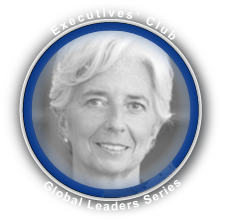 Illinois leaders were addressed by Her Excellency Christine Lagarde, Economy, Industry and Employment Minister, Republic of France at the special luncheon held in her honor by the Executives’ Club of Chicago at the Westin on 23 May 2008. Attending were Chicago Mayor Richard M. and Maggie Daley, a French delegation that included the Ambassador of France to the U.S. Pierre Vimont, the Head of Cabinet Christian Dufour, David Appia, Minister Counselor for Economic and Commercial Affairs, and numerous executives of Chicago Fortune 500 firms. Illinois leaders were addressed by Her Excellency Christine Lagarde, Economy, Industry and Employment Minister, Republic of France at the special luncheon held in her honor by the Executives’ Club of Chicago at the Westin on 23 May 2008. Attending were Chicago Mayor Richard M. and Maggie Daley, a French delegation that included the Ambassador of France to the U.S. Pierre Vimont, the Head of Cabinet Christian Dufour, David Appia, Minister Counselor for Economic and Commercial Affairs, and numerous executives of Chicago Fortune 500 firms.
If one were not listening attentively and willing to question stereotypes, it would have been too easy miss this intriguing story. However, as in all things “2.0,” profound change manifests slowly at first, and I detected a glimmer of disruption in France’s status quo. Having lived in West Berlin surrounded by the concrete reality of a wall that subsequently, unbelievably, came down, I ask myself, “What if France were […]
Geography 3.0, What It Is and What It Means predicts a new synthesis in the Knowledge Economy—fast forward to the past—Plus, the fire
 Noodles are largely driven by intuition and holistic mental doodling, and this one has been simmering a long time*. I believe that there is profound meaning in virtual and literal “mobility,” and I’ll explore its significance in terms geography and human relationships. Geography has always had a profound impact on how humans have lived and the organizations in which we have lived, and when its meaning shifts, our lives are transformed. This is of paramount importance because human relationships are currently transitioning from geography-based to interest-based. Many governments and businesses harbor business rules that assume geography-based relationships, and, unless they appreciate the shift to interest-based relationships, they will experience disruption’s spin cycle. Lose a turn. Don’t pass go ,^) Noodles are largely driven by intuition and holistic mental doodling, and this one has been simmering a long time*. I believe that there is profound meaning in virtual and literal “mobility,” and I’ll explore its significance in terms geography and human relationships. Geography has always had a profound impact on how humans have lived and the organizations in which we have lived, and when its meaning shifts, our lives are transformed. This is of paramount importance because human relationships are currently transitioning from geography-based to interest-based. Many governments and businesses harbor business rules that assume geography-based relationships, and, unless they appreciate the shift to interest-based relationships, they will experience disruption’s spin cycle. Lose a turn. Don’t pass go ,^)
Before exploring how these things will unfold in Part II, let’s review three geographies and four economies here in Part I…
[…]
“Yes,” Says Team of Healthcare Experts, Employer CEOs and Patient Representative at the Executives’ Club of Chicago, “But You Must Change Your Ways”
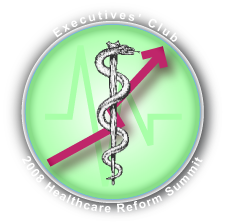 Honestly Assessing Quality—Engaging Consumer Empowerment—Trading in the Ferrari for a Chevy Honestly Assessing Quality—Engaging Consumer Empowerment—Trading in the Ferrari for a Chevy
The Executives’ Club of Chicago convened its healthcare reform summit at the Hilton Chicago on 20 February 2008, drawing on diverse expertise. Ian Morrison, Ph.D., healthcare futurist, gave the keynote and moderated two panels: first, the healthcare expertise panel with Dean Harrison, CEO Northwestern Memorial Healthcare; William Novelli, CEO AARP; Scott P. Serota, CEO BlueCross BlueShield Association; and second, the business executive panel with Andrew M. Appel, Chairman AON Consulting; John A. Edwardson, CEO, CDW; John B. Menzer, Vice Chairman and Administrative Officer, Wal-Mart Stores. Robert L. Parkinson, CEO, Baxter Healthcare gave an insightful point of view on recommended actions to close the event.
There was broad agreement that the U.S. healthcare system was broken, and speakers offered excellent insights and perspectives about how to fix the system. However, what they didn’t say was as interesting as what they did, and I will address two key issues in […]
India Trade Minister Draws Chicago-India Parallels at Executives’ Club offers coverage of Shri Kamal Nath’s Chicago presentation. Key themes: new global economic architecture presages economic realignment and thinking beyond the obvious to tap emerging opportunities.
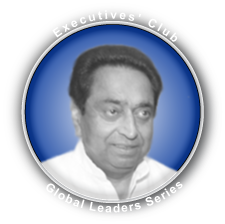 Illinois leaders were addressed by His Excellency Shri Kamal Nath, Minister of Commerce and Industry, Republic of India. True to form, His Excellency struck chords of transformation, partnership, common interests and harmony at the lunch held in his honor at the University Club on 19 February 2008. Attending were Chicago Mayor Richard M. Daley, Mr. Rajinder Bedi, Managing Director of the Illinois Office of Trade and Investment, The Honorable Susan Schwab, U.S. Trade Representative, Craig S. Donohue, Chief Executive Officer, CME Group and John Estey, President & Chief Executive Officer, SC Electric Company. Illinois leaders were addressed by His Excellency Shri Kamal Nath, Minister of Commerce and Industry, Republic of India. True to form, His Excellency struck chords of transformation, partnership, common interests and harmony at the lunch held in his honor at the University Club on 19 February 2008. Attending were Chicago Mayor Richard M. Daley, Mr. Rajinder Bedi, Managing Director of the Illinois Office of Trade and Investment, The Honorable Susan Schwab, U.S. Trade Representative, Craig S. Donohue, Chief Executive Officer, CME Group and John Estey, President & Chief Executive Officer, SC Electric Company.
Reading between the lines, the U.S. and India stand at a significant turning point: India’s impressive economic growth is a significant element of the ongoing redistribution of global economic power—which holds excellent opportunities for U.S. businesses and workers that are looking for it.
[…]
Web 2.0 Impact on 2008 U.S. Presidential Election Declared Minimal at Executives’ Club, but cantankerous subtext hints at possible monkey wrench—democratic race in spotlight.
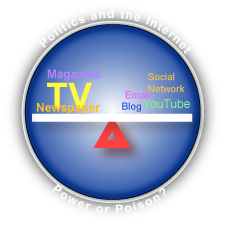 The Executives’ Club of Chicago fielded an expert panel to brief Midwest executives on Web 2.0’s current and likely impact on one of the most watched U.S. elections in recent history. Marie Cocco, a renowned political columnist, Peter Greenburger, Director of Google’s Elections & Issue Advocacy Team, and Alan Webber, Senior Analyst of Forrester Research brought to bear diverse perspectives on the question at the event, which took place at The University Club on January 31, 2008. The Executives’ Club of Chicago fielded an expert panel to brief Midwest executives on Web 2.0’s current and likely impact on one of the most watched U.S. elections in recent history. Marie Cocco, a renowned political columnist, Peter Greenburger, Director of Google’s Elections & Issue Advocacy Team, and Alan Webber, Senior Analyst of Forrester Research brought to bear diverse perspectives on the question at the event, which took place at The University Club on January 31, 2008.
They produced a logical conclusion, namely that Web 2.0 was a force in the making but that it would probably not be a decisive factor this year. The session was graciously co-hosted by Communications Committee Co-Chairs David Prosperi, Vice President Global Public Relations, AON and David Blake, Publisher of Crain’s Chicago Business.
As usual, I will share my notes of speakers’ remarks before adding my between the lines analysis and conclusions. As an […]
U.S. Economy Due for Sideways Year—Special Effects by Presidential Election—Uncomfortable Long-term Questions Waiting in Wings
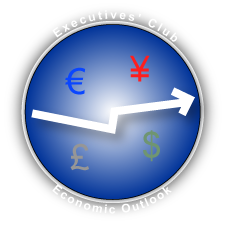 The Executives’ Club of Chicago assembled an all-star panel to give Midwest business leaders their guidance for various aspects of the U.S. economy in 2008. Diane Swonk, Chief Economist of Mesirow Financial and Robert “Bob” Froehlich, Chairman of the Investment Strategy Committee, Deutsche Asset Management returned, and the mystery panelist was Jack Ablin, Chief Investment Officer, Harris Private Bank. They broke out their respective crystal balls for 2008, along with comedic effects. The session was brilliantly moderated by Terry Savage, Financial Columnist of the Chicago Sun-Times who didn’t miss a beat and extracted specific predictions from panelists. The Executives’ Club of Chicago assembled an all-star panel to give Midwest business leaders their guidance for various aspects of the U.S. economy in 2008. Diane Swonk, Chief Economist of Mesirow Financial and Robert “Bob” Froehlich, Chairman of the Investment Strategy Committee, Deutsche Asset Management returned, and the mystery panelist was Jack Ablin, Chief Investment Officer, Harris Private Bank. They broke out their respective crystal balls for 2008, along with comedic effects. The session was brilliantly moderated by Terry Savage, Financial Columnist of the Chicago Sun-Times who didn’t miss a beat and extracted specific predictions from panelists.
Panelists agreed that the U.S. economy would struggle in 2008, but it would move mostly sideways, probably eking out a 1-2% gain for the year after an unsatisfying first half. All panelists predicted that the Dow would touch 14,000 sometime during the year. Froehlich again emphasized the importance of looking beyond the U.S. for investments. Swonk and Ablin were less outspoken but had high non-U.S. allocations in their recommended […]
Year in Review 2007—Editor’s Choice of the Global Human Capital Journal
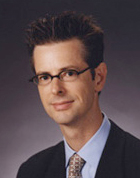 As I reflect on 2007 and create strategy for 2008, several macro-trends come into sharp relief, and I believe that some of them might be helpful to you as you conduct your own planning. As always, I focus on emerging phenomena because they are areas in which disruption and discontinuous change are acting on markets, thereby elevating threats and opportunities. Helping leaders to create strategy to manage the risk of unusual market developments is the focus of my consulting practice. As I reflect on 2007 and create strategy for 2008, several macro-trends come into sharp relief, and I believe that some of them might be helpful to you as you conduct your own planning. As always, I focus on emerging phenomena because they are areas in which disruption and discontinuous change are acting on markets, thereby elevating threats and opportunities. Helping leaders to create strategy to manage the risk of unusual market developments is the focus of my consulting practice.
In 2007 it became clear to me that we were entering a profound social transformation that would produce an unimaginable degree of change. Unlike the technology-precipitated change that I’ve been helping people with since the 1990s, technology is shifting to the background now, and pervasive social change is taking the stage. Look for disruption in all areas affected by how people connect, communicate, purchase and collaborate: business, politics, community and leisure. Moreover, these changes are completely global with all the variations that engenders.
I can’t tell […]
Will China’s Rise Lead to an Environmental Catastrophe? summarizes The Economist Chicago debate, examining the environmental fallout of the Chinese economic supernova—sibling rivalry rears its ugly head.
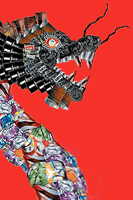 In 2007, nary an RSS feed or the page of a newspaper (for those still inclined ,^) does not mention China’s exploding impact on the global stage: China is truly an economic supernova, and it is breaking almost any record for development that is laid before it. However, China’s breakneck development is accompanied by grave environmental fallout: for example, as the host of the Beijing 2008 Olympic Games, the city is designing extreme measures to ensure that the air is clean enough for the athletes to breathe. The chief culprit is coal, a key source for China’s insatiable need for electric power, and a resource that the country has in abundance. For key facts on China, I suggest The Economist’s Country Briefing or CSRA’s Emerging Markets category (in depth) or China tag (mentions). In 2007, nary an RSS feed or the page of a newspaper (for those still inclined ,^) does not mention China’s exploding impact on the global stage: China is truly an economic supernova, and it is breaking almost any record for development that is laid before it. However, China’s breakneck development is accompanied by grave environmental fallout: for example, as the host of the Beijing 2008 Olympic Games, the city is designing extreme measures to ensure that the air is clean enough for the athletes to breathe. The chief culprit is coal, a key source for China’s insatiable need for electric power, and a resource that the country has in abundance. For key facts on China, I suggest The Economist’s Country Briefing or CSRA’s Emerging Markets category (in depth) or China tag (mentions).
The Economist and WBEZ 91.5 FM presented an Oxford-style debate on the effect that China’s rise […]
Caterpillar CEO Pitches Free Trade to Business Leaders at Executives’ Club asks whether the U.S. is at turning point with global economy in the balance—A lack of courage?
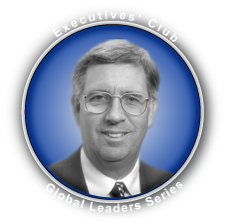 James W. Owens, Chairman and Chief Executive Officer of Caterpillar Inc., beseeched U.S. business and government leaders to find the courage to save free trade. The speaker at the Executives’ Club of Chicago’s Global Leaders Series, Owens addressed a packed house at the Hilton Chicago on 16 October 2007. His speech was immediately followed by the Club’s Technology Conference at which CIOs advised their peers on the emerging role of the CIO in the “networked economy 2.0.” James W. Owens, Chairman and Chief Executive Officer of Caterpillar Inc., beseeched U.S. business and government leaders to find the courage to save free trade. The speaker at the Executives’ Club of Chicago’s Global Leaders Series, Owens addressed a packed house at the Hilton Chicago on 16 October 2007. His speech was immediately followed by the Club’s Technology Conference at which CIOs advised their peers on the emerging role of the CIO in the “networked economy 2.0.”
A Ph.D. economist with extensive global management experience, Owens made a very convincing argument that the U.S. and the global economy are at a turning point. It is time for the U.S. to lead by example to assure the continuance of the free trade juggernaut that has produced so much wealth in the world. If it fails, the world stands before the prospect of sharply curtailed trade.
Following […]
|
|
 Healthcare systems worldwide are criticized for falling short of expectations, and countries like the U.S. which feature aging populations, are rapidly approaching a crisis. Demand and cost will grow, but the system as currently structured will certainly break down unless radical changes are made. Web 2.0’s disruptive potential can be part of the remedy: we need to introduce much more accountability and collaboration into all parts of the system. We need to change the paternalistic attitudes that pervade the system, treat patients as active participants and encourage everyone to be more accountable. This series introduces healthcare Web 2.0 innovators.
Healthcare systems worldwide are criticized for falling short of expectations, and countries like the U.S. which feature aging populations, are rapidly approaching a crisis. Demand and cost will grow, but the system as currently structured will certainly break down unless radical changes are made. Web 2.0’s disruptive potential can be part of the remedy: we need to introduce much more accountability and collaboration into all parts of the system. We need to change the paternalistic attitudes that pervade the system, treat patients as active participants and encourage everyone to be more accountable. This series introduces healthcare Web 2.0 innovators.
 Illinois leaders were addressed by Her Excellency Christine Lagarde, Economy, Industry and Employment Minister, Republic of France at the special luncheon held in her honor by the Executives’ Club of Chicago at the Westin on 23 May 2008. Attending were Chicago Mayor Richard M. and Maggie Daley, a French delegation that included the Ambassador of France to the U.S. Pierre Vimont, the Head of Cabinet Christian Dufour, David Appia, Minister Counselor for Economic and Commercial Affairs, and numerous executives of Chicago Fortune 500 firms.
Illinois leaders were addressed by Her Excellency Christine Lagarde, Economy, Industry and Employment Minister, Republic of France at the special luncheon held in her honor by the Executives’ Club of Chicago at the Westin on 23 May 2008. Attending were Chicago Mayor Richard M. and Maggie Daley, a French delegation that included the Ambassador of France to the U.S. Pierre Vimont, the Head of Cabinet Christian Dufour, David Appia, Minister Counselor for Economic and Commercial Affairs, and numerous executives of Chicago Fortune 500 firms. Noodles are largely driven by intuition and holistic mental doodling, and this one has been simmering a long time*. I believe that there is profound meaning in virtual and literal “mobility,” and I’ll explore its significance in terms geography and human relationships. Geography has always had a profound impact on how humans have lived and the organizations in which we have lived, and when its meaning shifts, our lives are transformed. This is of paramount importance because human relationships are currently transitioning from geography-based to interest-based. Many governments and businesses harbor business rules that assume geography-based relationships, and, unless they appreciate the shift to interest-based relationships, they will experience disruption’s spin cycle. Lose a turn. Don’t pass go ,^)
Noodles are largely driven by intuition and holistic mental doodling, and this one has been simmering a long time*. I believe that there is profound meaning in virtual and literal “mobility,” and I’ll explore its significance in terms geography and human relationships. Geography has always had a profound impact on how humans have lived and the organizations in which we have lived, and when its meaning shifts, our lives are transformed. This is of paramount importance because human relationships are currently transitioning from geography-based to interest-based. Many governments and businesses harbor business rules that assume geography-based relationships, and, unless they appreciate the shift to interest-based relationships, they will experience disruption’s spin cycle. Lose a turn. Don’t pass go ,^) Honestly Assessing Quality—Engaging Consumer Empowerment—Trading in the Ferrari for a Chevy
Honestly Assessing Quality—Engaging Consumer Empowerment—Trading in the Ferrari for a Chevy Illinois leaders were addressed by His Excellency Shri Kamal Nath, Minister of Commerce and Industry, Republic of India. True to form, His Excellency struck chords of transformation, partnership, common interests and harmony at the lunch held in his honor at the University Club on 19 February 2008. Attending were Chicago Mayor Richard M. Daley, Mr. Rajinder Bedi, Managing Director of the Illinois Office of Trade and Investment, The Honorable Susan Schwab, U.S. Trade Representative, Craig S. Donohue, Chief Executive Officer, CME Group and John Estey, President & Chief Executive Officer, SC Electric Company.
Illinois leaders were addressed by His Excellency Shri Kamal Nath, Minister of Commerce and Industry, Republic of India. True to form, His Excellency struck chords of transformation, partnership, common interests and harmony at the lunch held in his honor at the University Club on 19 February 2008. Attending were Chicago Mayor Richard M. Daley, Mr. Rajinder Bedi, Managing Director of the Illinois Office of Trade and Investment, The Honorable Susan Schwab, U.S. Trade Representative, Craig S. Donohue, Chief Executive Officer, CME Group and John Estey, President & Chief Executive Officer, SC Electric Company. The Executives’ Club of Chicago fielded an expert panel to brief Midwest executives on Web 2.0’s current and likely impact on one of the most watched U.S. elections in recent history. Marie Cocco, a renowned political columnist, Peter Greenburger, Director of Google’s Elections & Issue Advocacy Team, and Alan Webber, Senior Analyst of Forrester Research brought to bear diverse perspectives on the question at the event, which took place at The University Club on January 31, 2008.
The Executives’ Club of Chicago fielded an expert panel to brief Midwest executives on Web 2.0’s current and likely impact on one of the most watched U.S. elections in recent history. Marie Cocco, a renowned political columnist, Peter Greenburger, Director of Google’s Elections & Issue Advocacy Team, and Alan Webber, Senior Analyst of Forrester Research brought to bear diverse perspectives on the question at the event, which took place at The University Club on January 31, 2008. The Executives’ Club of Chicago assembled an all-star panel to give Midwest business leaders their guidance for various aspects of the U.S. economy in 2008. Diane Swonk, Chief Economist of Mesirow Financial and Robert “Bob” Froehlich, Chairman of the Investment Strategy Committee, Deutsche Asset Management returned, and the mystery panelist was Jack Ablin, Chief Investment Officer, Harris Private Bank. They broke out their respective crystal balls for 2008, along with comedic effects. The session was brilliantly moderated by Terry Savage, Financial Columnist of the Chicago Sun-Times who didn’t miss a beat and extracted specific predictions from panelists.
The Executives’ Club of Chicago assembled an all-star panel to give Midwest business leaders their guidance for various aspects of the U.S. economy in 2008. Diane Swonk, Chief Economist of Mesirow Financial and Robert “Bob” Froehlich, Chairman of the Investment Strategy Committee, Deutsche Asset Management returned, and the mystery panelist was Jack Ablin, Chief Investment Officer, Harris Private Bank. They broke out their respective crystal balls for 2008, along with comedic effects. The session was brilliantly moderated by Terry Savage, Financial Columnist of the Chicago Sun-Times who didn’t miss a beat and extracted specific predictions from panelists. As I reflect on 2007 and create strategy for 2008, several macro-trends come into sharp relief, and I believe that some of them might be helpful to you as you conduct your own planning. As always, I focus on emerging phenomena because they are areas in which disruption and discontinuous change are acting on markets, thereby elevating threats and opportunities. Helping leaders to create strategy to manage the risk of unusual market developments is the focus of my consulting practice.
As I reflect on 2007 and create strategy for 2008, several macro-trends come into sharp relief, and I believe that some of them might be helpful to you as you conduct your own planning. As always, I focus on emerging phenomena because they are areas in which disruption and discontinuous change are acting on markets, thereby elevating threats and opportunities. Helping leaders to create strategy to manage the risk of unusual market developments is the focus of my consulting practice. In 2007, nary an RSS feed or the page of a newspaper (for those still inclined ,^) does not mention China’s exploding impact on the global stage: China is truly an economic supernova, and it is breaking almost any record for development that is laid before it. However, China’s breakneck development is accompanied by grave environmental fallout: for example, as the host of the Beijing 2008 Olympic Games, the city is designing extreme measures to ensure that the air is clean enough for the athletes to breathe. The chief culprit is coal, a key source for China’s insatiable need for electric power, and a resource that the country has in abundance. For key facts on China, I suggest The Economist’s Country Briefing or CSRA’s Emerging Markets category (in depth) or China tag (mentions).
In 2007, nary an RSS feed or the page of a newspaper (for those still inclined ,^) does not mention China’s exploding impact on the global stage: China is truly an economic supernova, and it is breaking almost any record for development that is laid before it. However, China’s breakneck development is accompanied by grave environmental fallout: for example, as the host of the Beijing 2008 Olympic Games, the city is designing extreme measures to ensure that the air is clean enough for the athletes to breathe. The chief culprit is coal, a key source for China’s insatiable need for electric power, and a resource that the country has in abundance. For key facts on China, I suggest The Economist’s Country Briefing or CSRA’s Emerging Markets category (in depth) or China tag (mentions). James W. Owens, Chairman and Chief Executive Officer of Caterpillar Inc., beseeched U.S. business and government leaders to find the courage to save free trade. The speaker at the Executives’ Club of Chicago’s Global Leaders Series, Owens addressed a packed house at the Hilton Chicago on 16 October 2007. His speech was immediately followed by the Club’s Technology Conference at which CIOs advised their peers on the emerging role of the CIO in the “networked economy 2.0.”
James W. Owens, Chairman and Chief Executive Officer of Caterpillar Inc., beseeched U.S. business and government leaders to find the courage to save free trade. The speaker at the Executives’ Club of Chicago’s Global Leaders Series, Owens addressed a packed house at the Hilton Chicago on 16 October 2007. His speech was immediately followed by the Club’s Technology Conference at which CIOs advised their peers on the emerging role of the CIO in the “networked economy 2.0.”